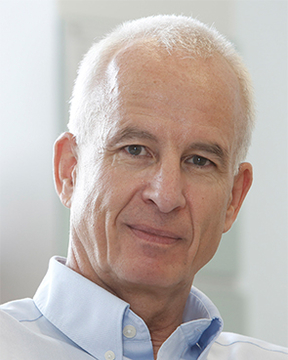Hier finden Sie detaillierte Profile der DKTK Faculty-Mitglieder mit Programmschwerpunkten und Forschungsfokus in der Forscherdatenbank. Kontakte aller DKTK Wissenschaftler:innen finden Sie im DKTK Intranet.
Forscherdatenbank

Prof. Dr. Bernhard Brüne
Faculty of Medicine, Biochemistry I
Theodor-Stern-Kai 7
60590 Frankfurt
Programme
School of Oncology (SoO)
Exploitation of Oncogenic Mechanisms (EOM)
Übersicht
Immune cells of the tumor microenvironment
Immune cells are present in all kinds of human tumors and represent an essential component of the tumor microenvironment. Their impact towards smoldering inflammation and oncogenesis has already been proposed in the 19th century by Rudolf Virchow. Immunity has the potential to induce tumor rejection but also shapes the clinically detectable tumor phenotype through constant interaction between immune cells and tumor cells. This dichotomy of being programmed from tumoricidal to tumor-promoting is true for nearly all tumor-infiltrating immune cell populations. Among immune cells infiltrating established tumors in humans and mice, mononuclear phagocytes and especially macrophages stick out both in their tumor-promoting ability as well as their number. The presence of tumor-associated macrophages (TAM) often is correlated to a poor survival prognosis and refers to virtually all hallmarks of cancer.
Signals of the tumor microenvironment that direct tumor-supportive immune cell activation are largely unidentified. Tumor development, similarly to basically all evolutionary processes, is accompanied by death of a large proportion of the whole population. Therefore, dying tumor cells are considered as a major tumor-enriched environmental niche. The interaction of immune cells e.g. macrophages or dendritic cells with dying/apoptotic tumor cells may be a mechanism to activate phagocytes towards tumor promotion, similar to the role of this interaction during wound healing. Within this process, we identified lipid mediators such as sphingolipids, prostaglandins, and lipoxygenase-derived mediators as well as distinct protein factors such as the cytokines IL-27 and IL-38, or lipocalin-2, as key molecules polarizing TAM, with a secondary impact on shaping lymphocyte activation.
Our group aims at understanding the full impact of bioactive lipids as well as proteins released from dying cells in immune cell activation by/in tumors in vitro and in vivo. Using conditional knockout technology in autochthonous cancer models we functionally examine the signal cross-talk in the tumor microenvironment. Mechanistic studies make also use of 3D-organoid/spheroid cultures to experimentally modulate signaling circuits and to explore points of intervention. Multi-parameter flow cytometry and multi-spectral imaging helps to understand data from preclinical mouse models and translating fundamental principles to patient-derived tumor samples to better define how dying tumor cells signal with their immediate environment and beyond.
For further information please visit www.pathobiochemie1.de.